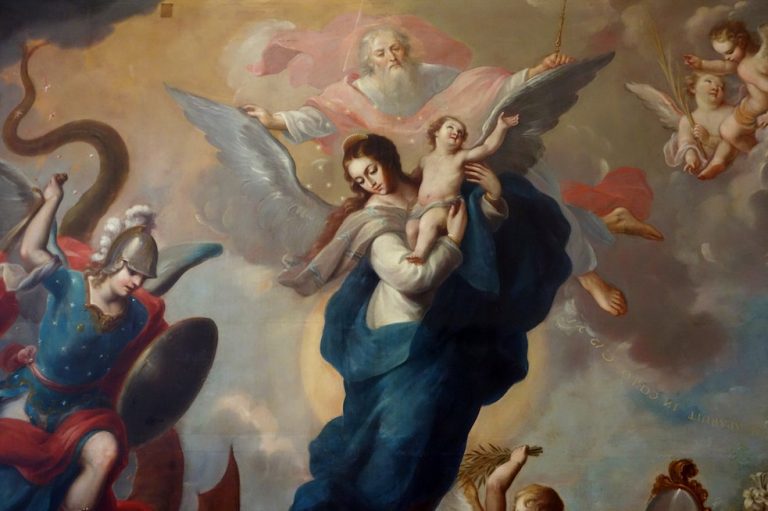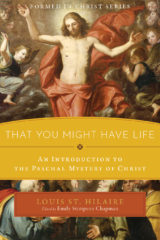By Louis St. Hilaire
Louis St. Hilaire is the author of That You Might Have Life: An Introduction to the Paschal Mystery of Christ and translator of The Literal Exposition of Isaiah: A Commentary by St. Thomas Aquinas (forthcoming from Emmaus Academic). A graduate of Franciscan University of Steubenville, he works as a web developer and digital editor for the St. Paul Center.

The promise of the Messiah was first revealed after Adam and Eve sinned in the Garden of Eden. God said to the serpent: “I will put enmity between you and the woman, and between your seed and her seed; he shall bruise your head, and you shall bruise his heel” (Gen 3:15).
Since the earliest days of Christianity, this verse has been considered the first announcement of the Good News of Jesus Christ. It’s often referred to as the “first gospel” or “protoevangelium”—a first, partial unveiling of God’s plan of salvation. As the Catechism puts it:
After his fall, man was not abandoned by God. On the contrary, God calls him and in a mysterious way heralds the coming victory over evil and his restoration from his fall [Cf. Gen 3:9, 15]. (CCC 410)
The word “seed” in this verse means “child” or “descendant.” In a general sense, this verse says that the battle between Satan and the human family will continue through the generations. More specifically, tradition has seen the “seed” of the woman as referring to a specific descendant of the woman: Jesus, the promised Messiah.
Sin entered the world through one man—Adam. As the “head” of the human race, Adam lost friendship with God by his disobedience, not just for himself but for the entire human family. At the same time, salvation comes through one man—Jesus. Jesus is the “New Adam,” who undoes Adam’s disobedience through his perfect obedience and who reunites us to God as the Head of the Body, the Church. St. Paul explains:
But the free gift is not like the trespass. For if many died through one man’s trespass, much more have the grace of God and the free gift in the grace of that one man Jesus Christ abounded for many. And the free gift is not like the effect of that one man’s sin. For the judgment following one trespass brought condemnation, but the free gift following many trespasses brings justification. If, because of one man’s trespass, death reigned through that one man, much more will those who receive the abundance of grace and the free gift of righteousness reign in life through the one man Jesus Christ. (Rom 5:15–17)
Similarly, as Adam’s sin occurred with the help of Eve, Jesus’ work of salvation occurs with the cooperation of Mary. Where Eve said “no” to God and then helped lead Adam astray, Mary said “yes” to God and allowed Jesus to enter the world through her. Thus, Mary is called the “New Eve.” She is also the first to benefit from Jesus’ victory over sin, being preserved by a special grace from original sin and all personal sin (CCC 411).
While the prophecy made in the garden was only fully understood after it was fulfilled in Jesus, we can see that, from the beginning, God shows his power in promising to bring something good out of the evil of our sin. The evil of our sin becomes an opportunity for God to unveil a plan of love and mercy that is greater than our sin and greater even than his original gifts to Adam and Eve (CCC 412).
You Might Also Like

The Formed in Christ series is a solid and faithful resource that provides a thorough treatment of the Catholic faith and the various branches of theology. That You Might Have Life: An Introduction to the Paschal Mystery of Christ takes us through creation, the Fall of Man, and Christ’s Paschal Mystery to the reader’s own life and what Christ’s redemption means for us.

